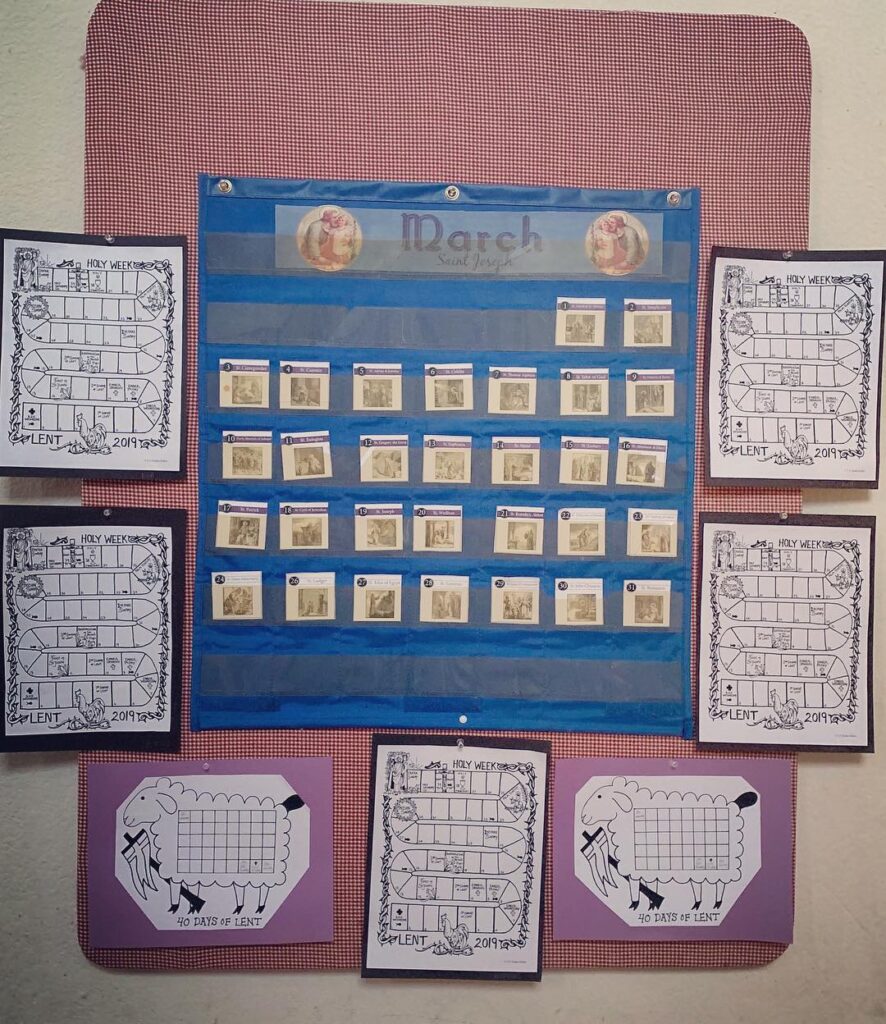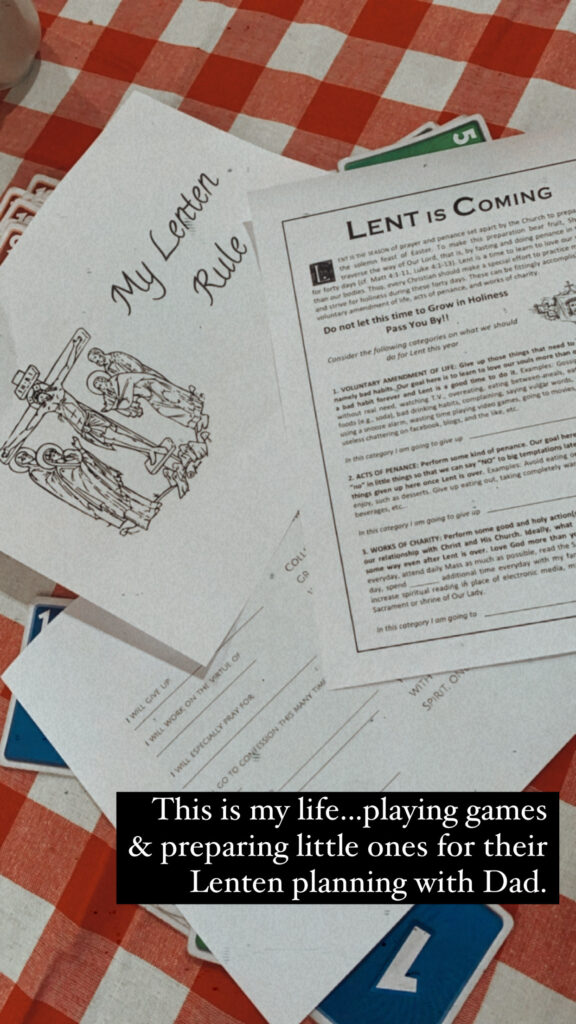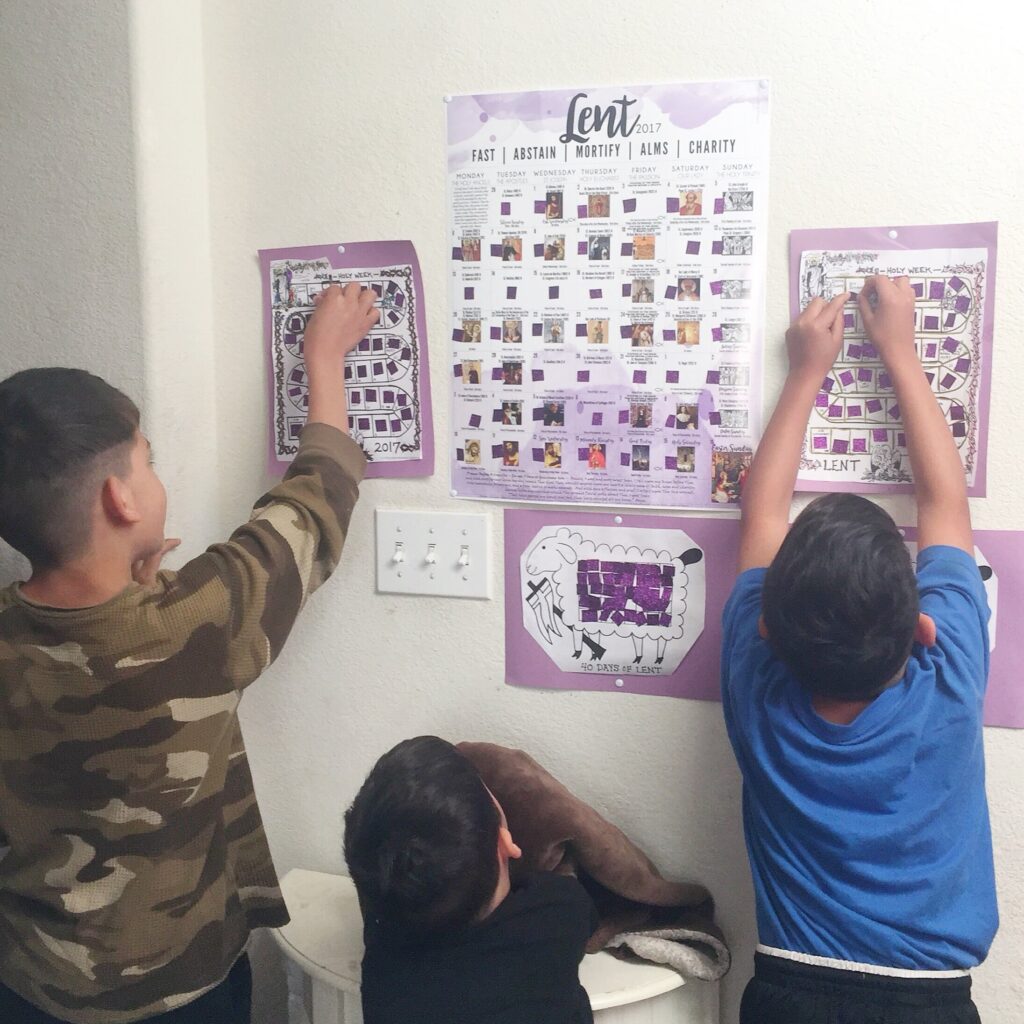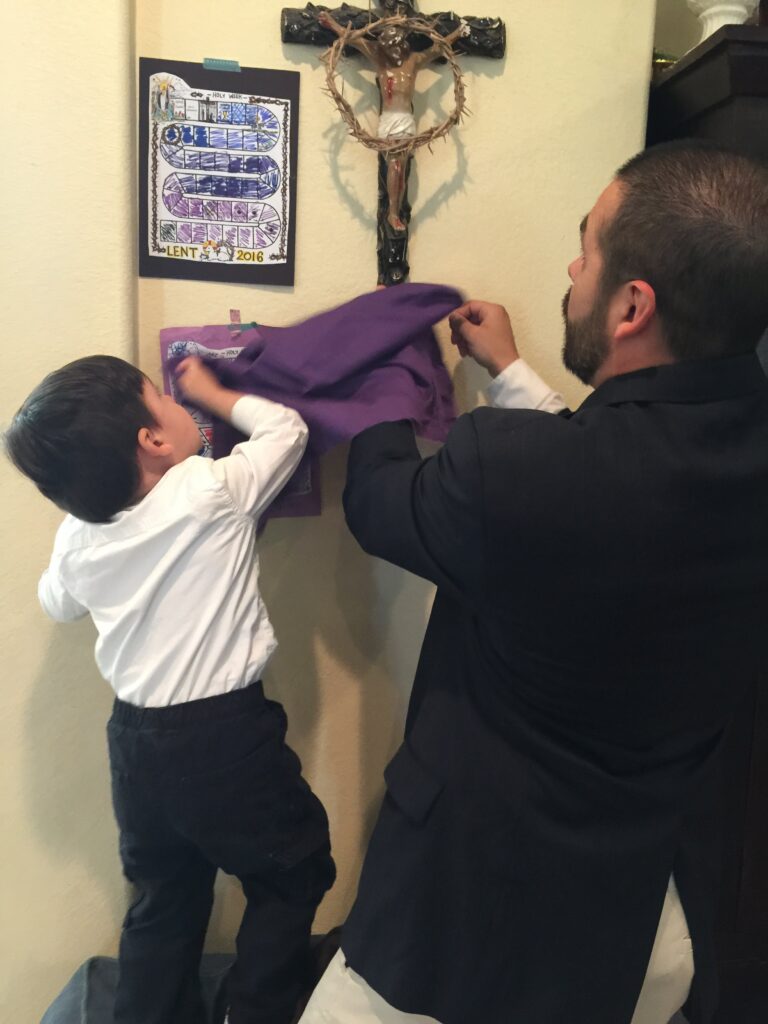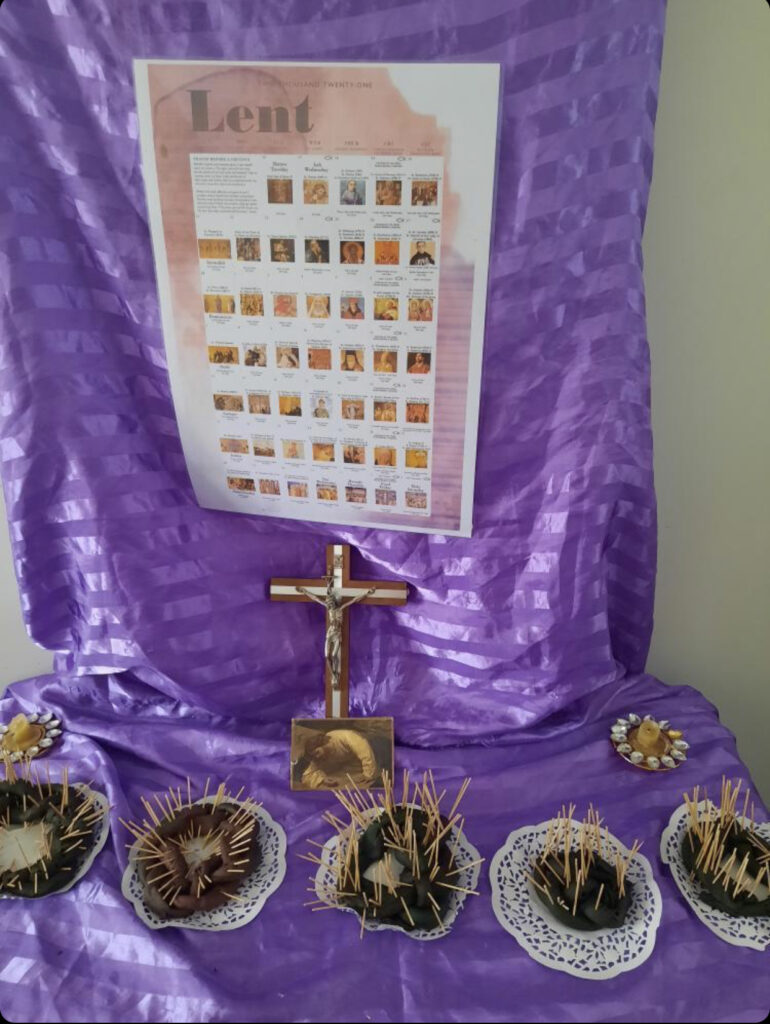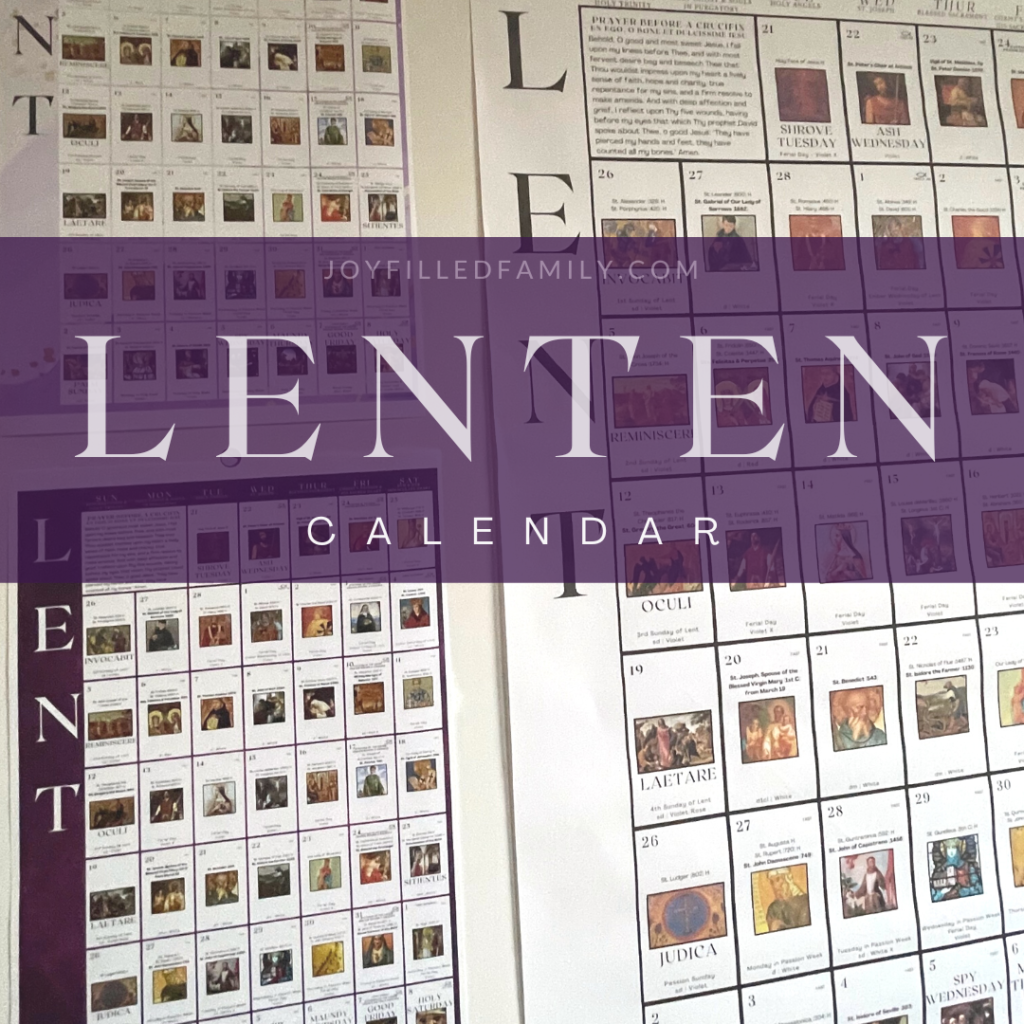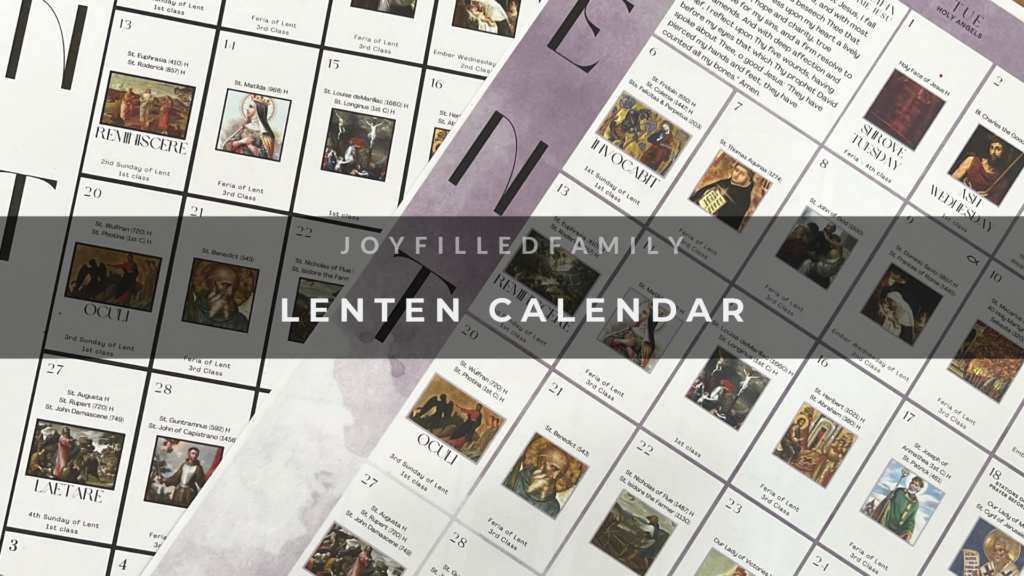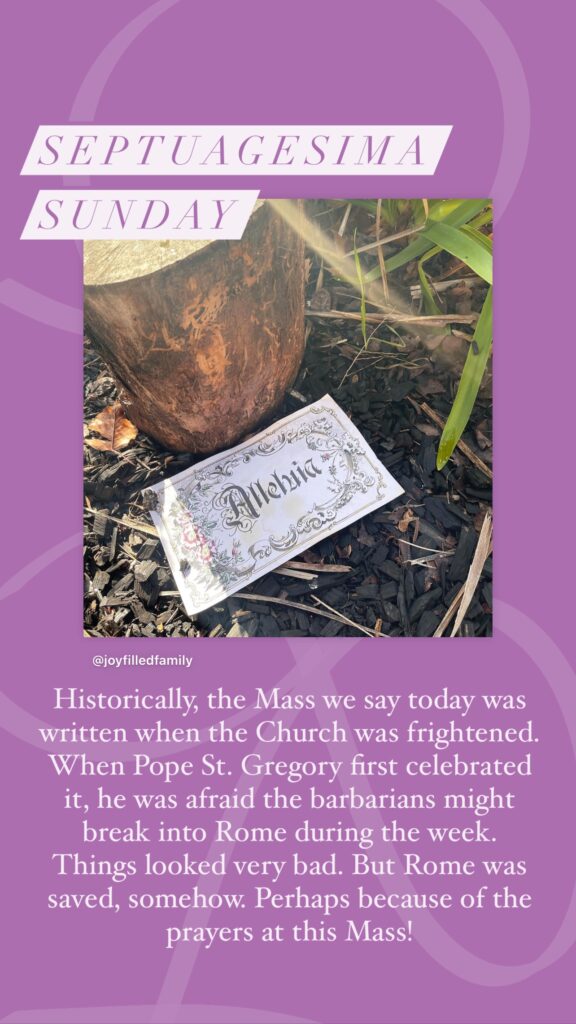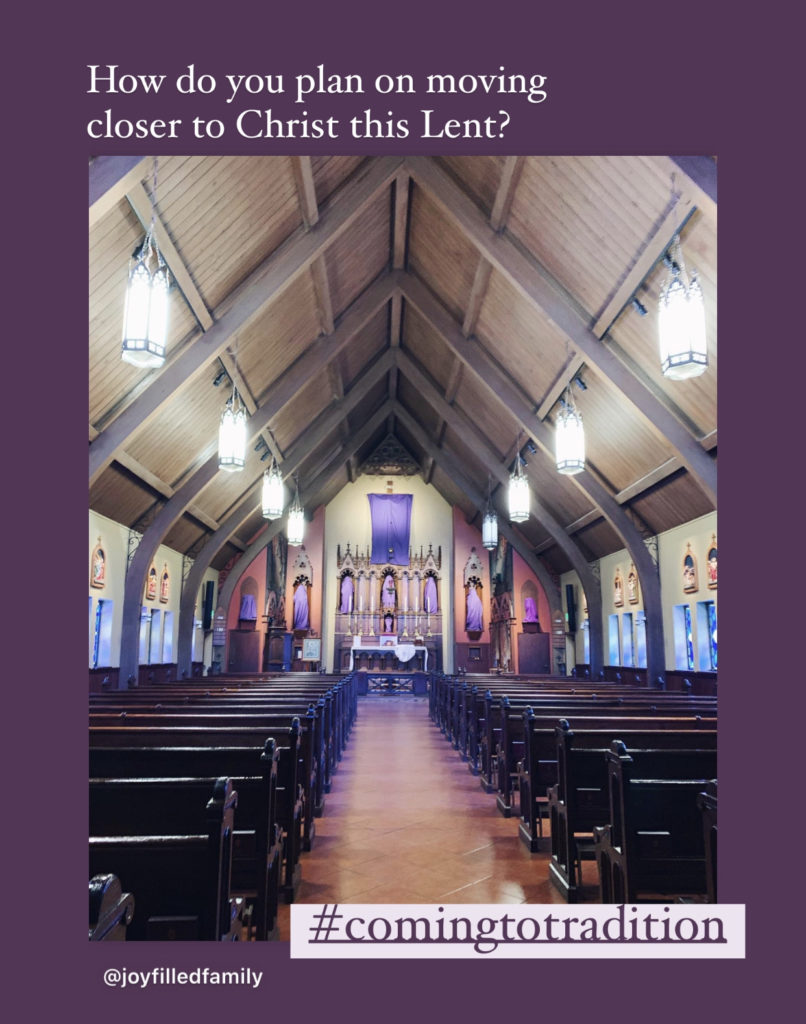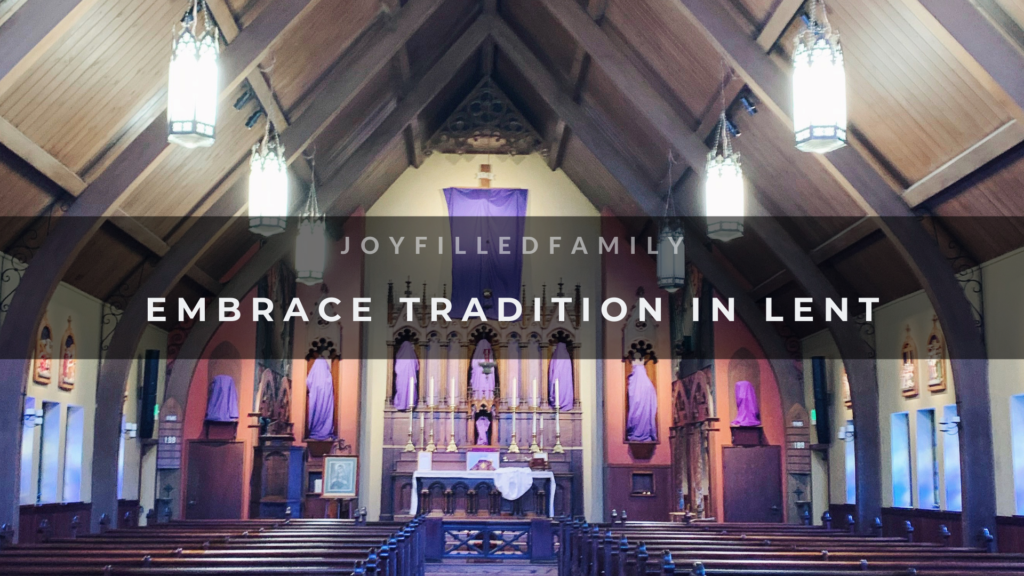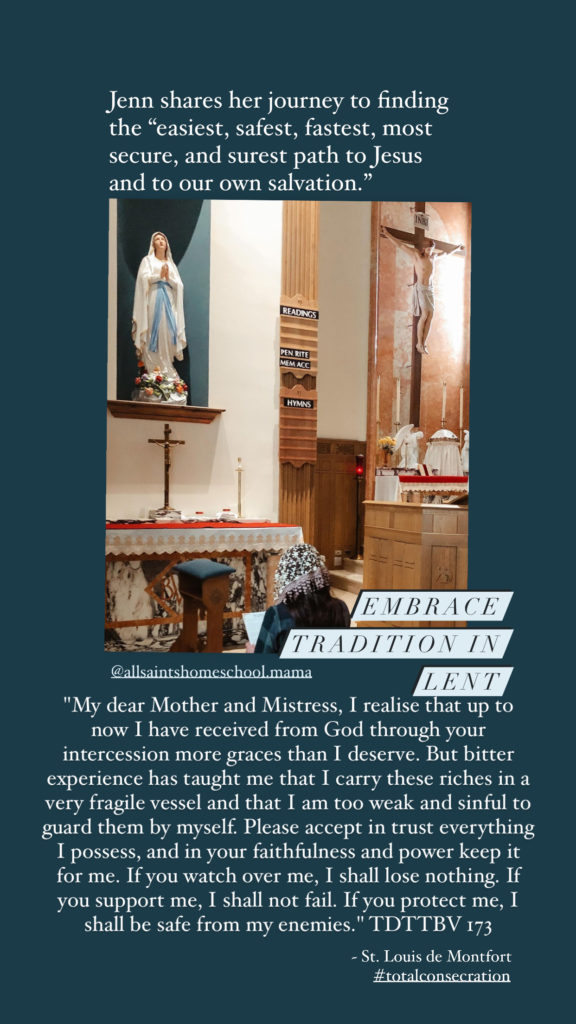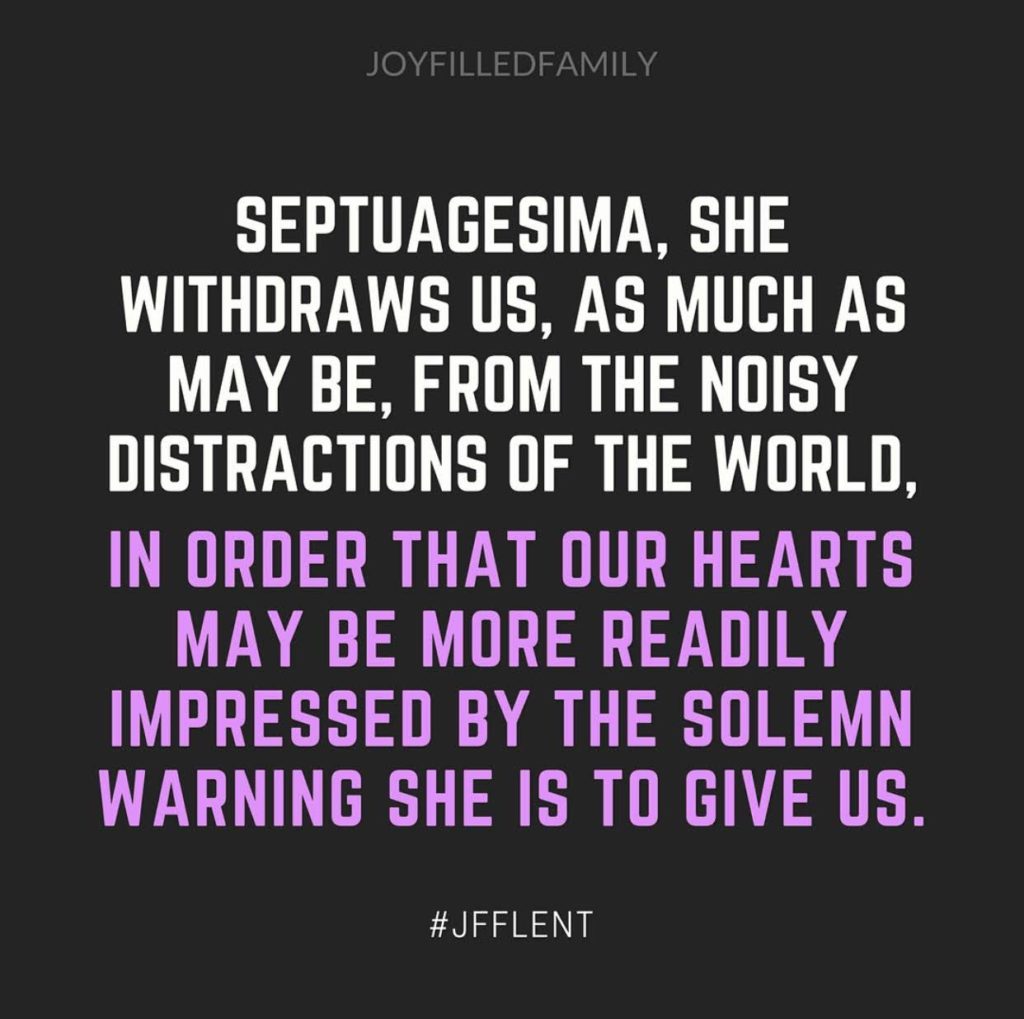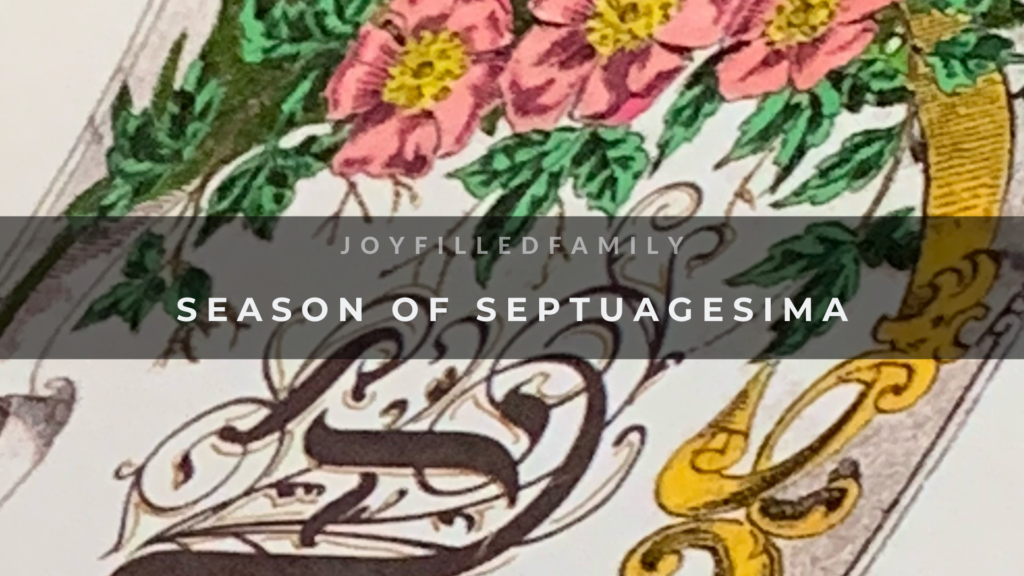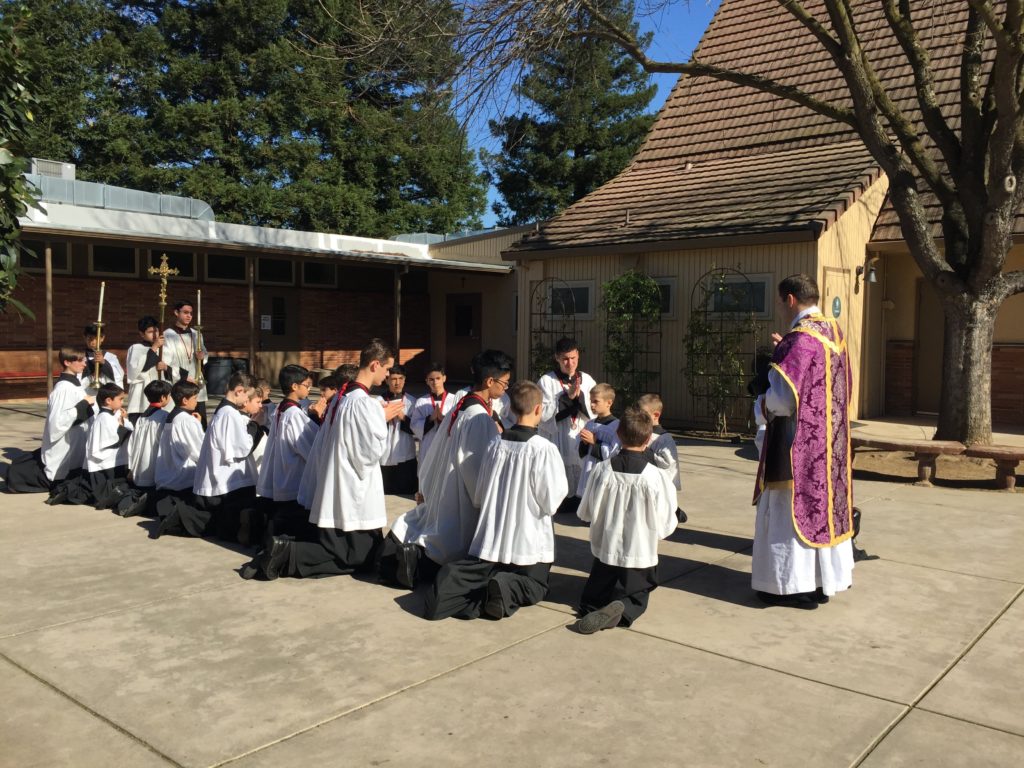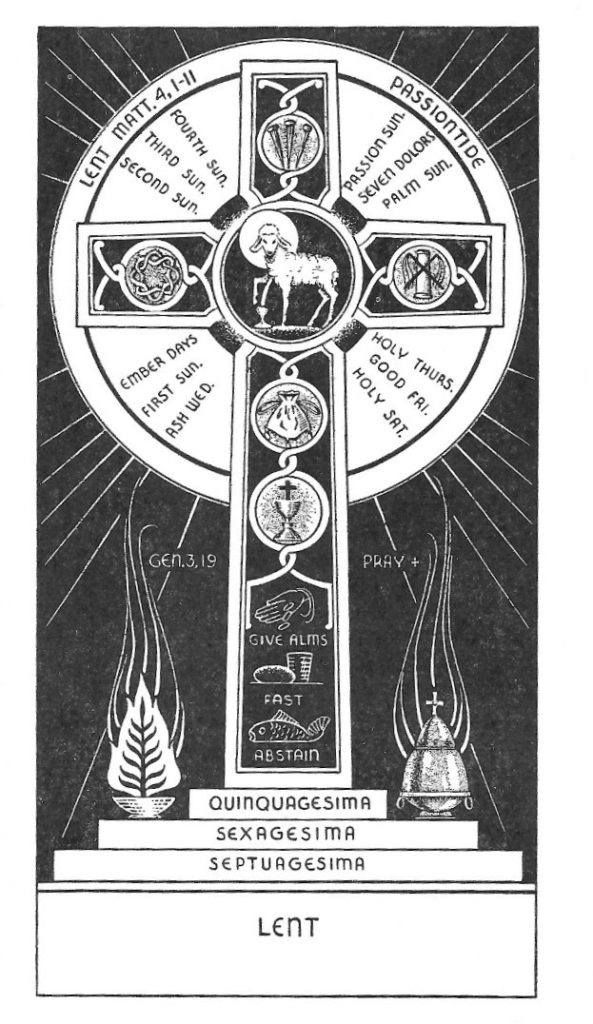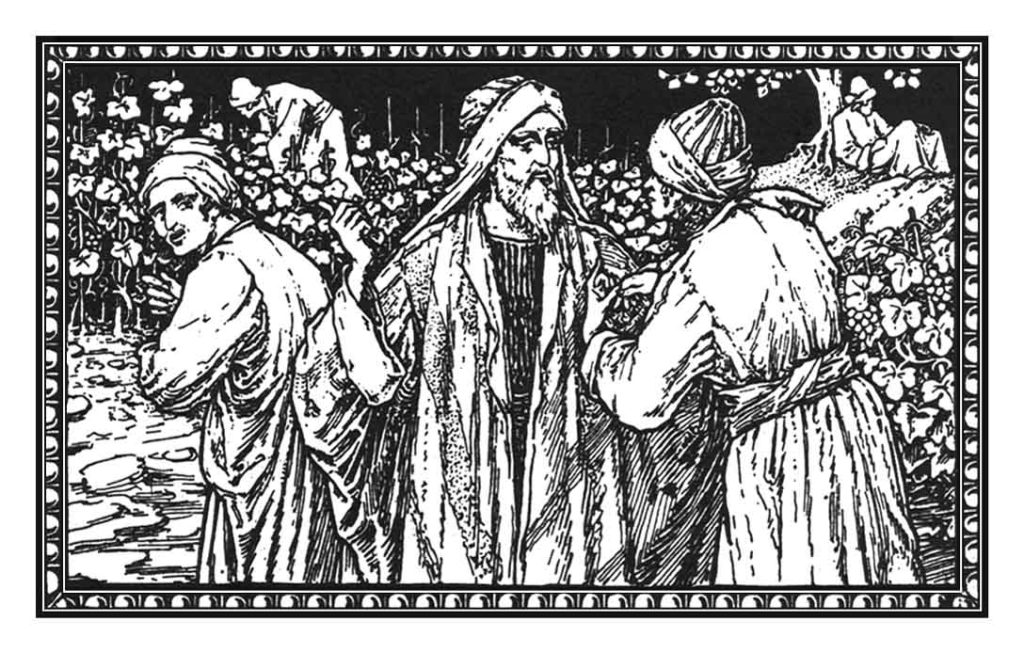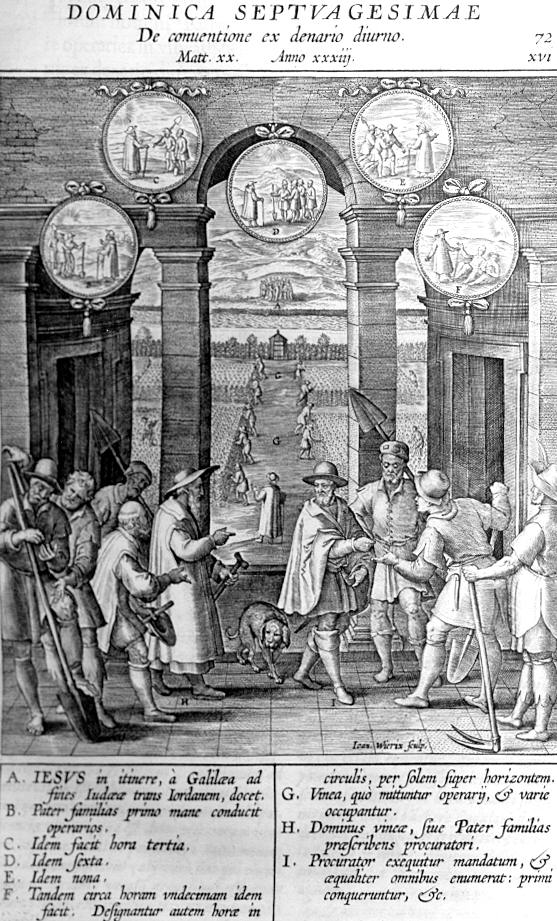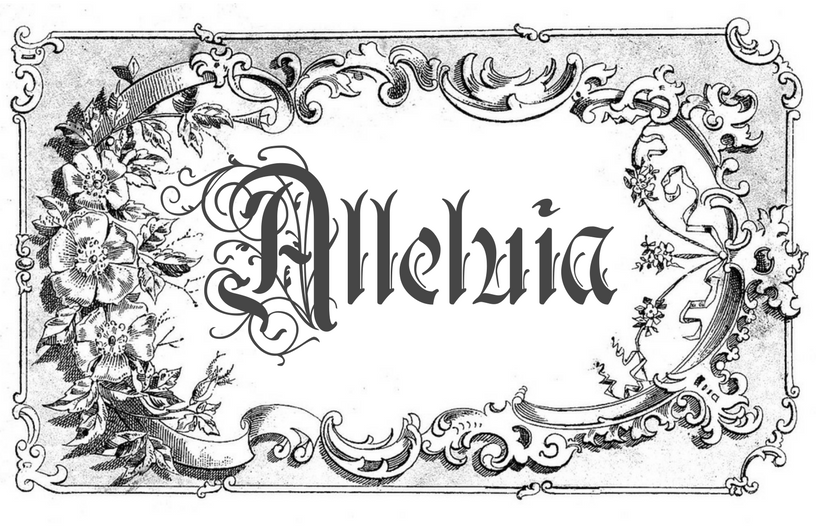Ash Wednesday is February 22 this year. Septuagesima in 2022 starts on Sunday, February 5. Septuagesima is the season that preludes to the penitential mortifications of Lent and is a time to prepare.
The Church, therefore, has instituted a preparation for the holy time of Lent. She gives us the three weeks of Septuagesima, during which she withdraws us, as much as may be, from the noisy distractions of the world, in order that our hearts may be the more readily impressed by the solemn warning she is to give us, at the commencement of Lent, by marking our foreheads with ashes.
The Liturgical Year by Dom Guéranger, Septuagesima
This Lenten Calendar was created several years ago and my children insist that we have it every Lent. It’s not grand by any means but it goes to show that a simple visual can have a great impact on all ages. I encourage you to find what your family can be fond of as you set to grow closer to Christ in Lent.
Please do not think that your Lenten plans must be extravagant or lengthy. There are many fruits to be found in a simple rhythm during all seasons, especially in the most penitential season of the year.
The institution of Lent is thus brought before us with everything that can impress the mind with its solemn character and with its power to appease God and purify our souls. Look beyond the little world that surrounds us and see how the entire Christian universe is, at this very time, offering forty days’ penance as a sacrifice of propitiation to the offended Majesty of God.
Abbot Gueranger, O.S.B.’s The Liturgical Year.
As always, you are invited to use this Lenten Calendar for your personal use.
This Lenten Calendar is set for a min offering. You may offer more if you wish but it is not required or expected. If you desire to print this calendar but are unable to pay, do not hesitate to reach out.
- You may download and print the calendar for your personal use.
- You may also link to this post but please do not link directly to the file download.
- Email me at JOYfilledfamily{at}gmail{dot}com if you need my assistance.
- This year’s calendar prints best as 11×17 or 24×36.
- Staples offers inexpensive printing options. The colored prints can be printed on 65-63 lb 11×17 cardstock for less than $2. The BW Calendar can be printed as a 24×36 “Blue Print” ($3.80) or colored for under $10– It’s thin paper but large and easy to read.
⋅⋅⋅⋅⋅⋅
Includes 4 variations of the 2023 & several Lenten Planning Sheets!
O most benign Jesus! who didst so desire to suffer for us, grant, that we may willingly suffer for love of Thee; that we may hate and flee from the detestable pleasures of the world and the flesh, and practice penance and mortification, that by so doing we may merit to be released from our spiritual blindness to love Thee more and more ardently, and finally possess Thee forever.
⋅⋅⋅⋅⋅⋅
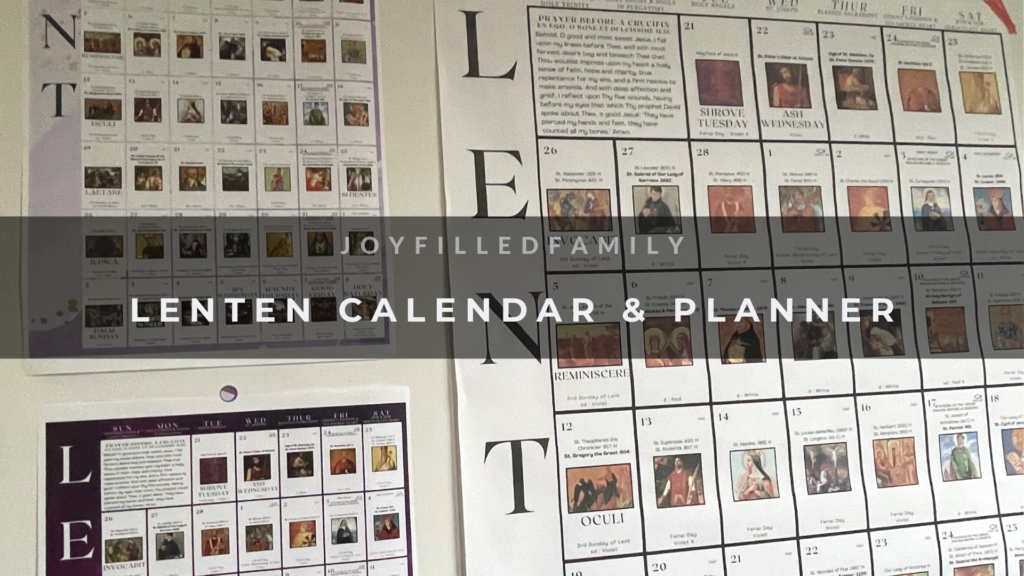
2023 Lenten Calendar Guide:
- This calendar follows the Liturgical Calendar of the Traditional Roman Rite (with rubrics from St. Pope Pius X)
- Saints are listed on Feria Days so we can invoke their intercession on their patronal feast day.
- Saints listed with “H” are from the Historical Calendar
- Each saint featured by a picture is identified by the name immediately above the image
- This calendar is the work of a lay Catholic for one’s personal observance of Lent and private devotions
2023 Planner:
- Liturgical Planner | Lent Feastday Planner – printed and used to help you plan for holy days & feastdays in the Lenten, Easter, Pentecost, and Time after Pentecost, season – 6 pgs
- Lent Examination for the duration of Advent 2023 – 1 pg
- Lent Plan to document your resolutions – 2 pgs
- Lent Calendar – one dated and one blank to use as needed – 2 pgs
- Lent Weekly Log to track resolutions – 8 pgs
- Lent Calendar 2023 – list form for easy reference. 2 pgs
⋅⋅⋅⋅⋅⋅
Below are FREE Lenten Resources
Lenten Resources for Children:
- Lent Questions & Answers
- Printable Lenten Plan – Blank for all ages
- Lent Planning Worksheet – Rorate Caeli
- Empty Tomb Garden
- Lenten Family Joy Journal
- Stations of the Cross Candles
- Resurrection Eggs
- Stations of the Cross for Children & Stations of the Cross Box – Family, Feast, and Feria
- Stations of the Cross Coloring Booklet – Catholic Playground
- Stations of the Cross Coloring Page – Catholic Playground
Lenten Spiritual Reading & Sermons:
- The Gospels for Lent and the Passion of Christ : readings at divine service during the forty days of Lent with short meditations for the faithful
- Lent and Holy Week : chapters on Catholic observance and ritual
- Meditations for Lent from St. Thomas Aquinas
- Homilies for Lent from the Church Fathers – audio: part 1, part 2, part 3, part 4, part 5
- FREE Traditional Catholic Books

